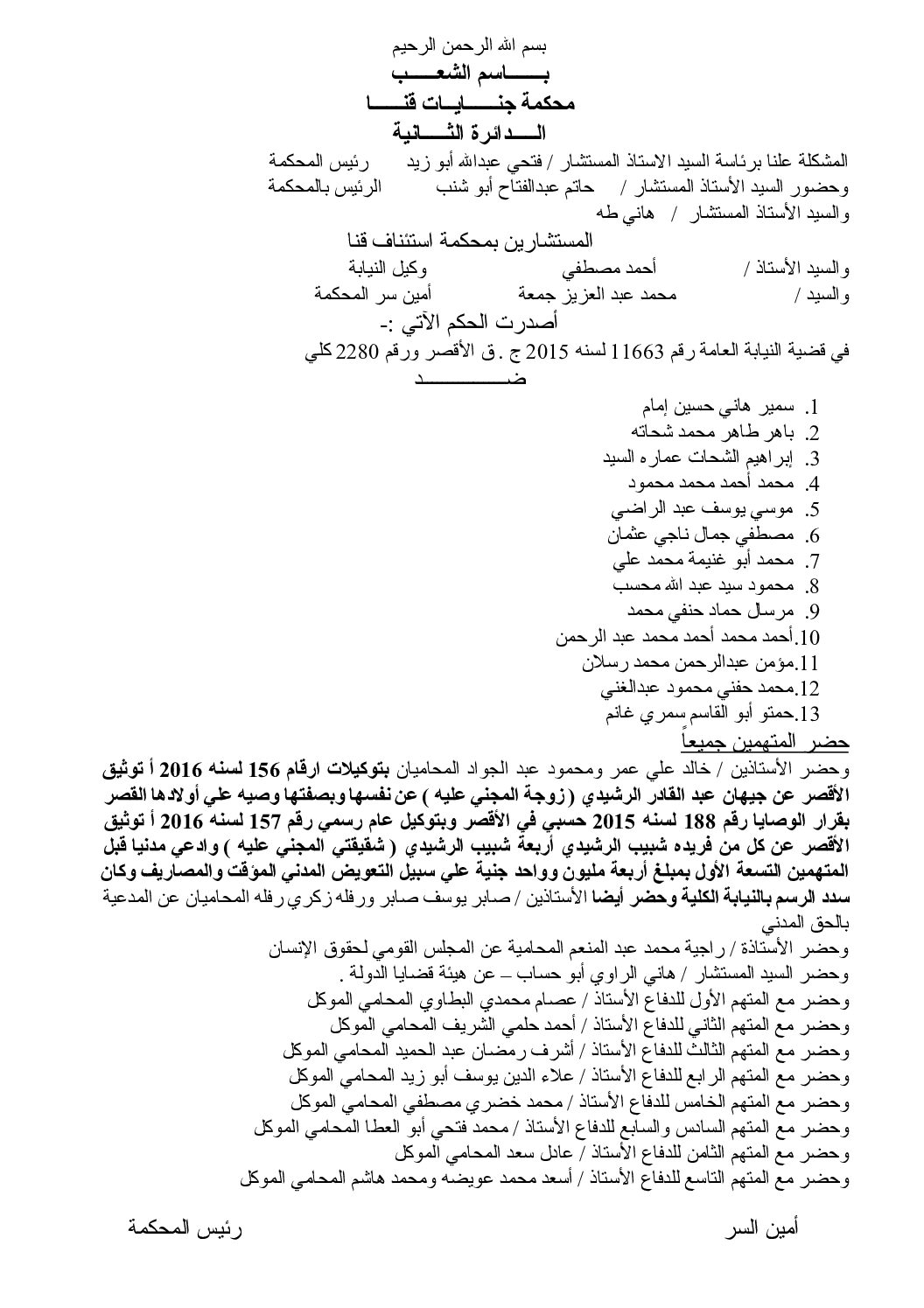Environmental Justice| Coal Case Judge Steps Down: ECESR Concerned about Pressures

-
Court lasted for 3 full sessions without any sense of discomfiture
-
ECESR believes big pressures are being exerted on coal opponents inside government
Justice Hassouna Tawfiq, the administrative judge presiding over the Center’s case calling for a ban on the use of coal in generating electricity and in cement industries in particular, stepped down today, in a development which came as surprise ECESR legal team.
The resignation was under the pretext of “discomfort” [conflict of interest] which the defense team found to be extremely suspicious, especially after three previous deliberations in which the court did not show any discomfort.
The ECESR legal team expressed deep concerns about the possibility that the court was put under pressure and forced to step down from considering the appeal in the final moments and immediately before the verdict.
ECESR stressed that the battle against decisions to use coal and other destructive pollutants will continue, so will its campaign with civil society partners, environmental experts, doctors, and all those involved. This is despite all the pressures on the center and anyone who rejects the use of coal, even from with the institutions of the state.
ECESR called on the administrative courts, who have a long history of siding with the interests of Egyptian citizens, to take an exemplary position against all short sighted policies, which neglect the harmful impact on the long run.
The appeal was presented on 14 March of this year against the cabinet decision to use and import coal, within the framework of energy generation. During the deliberations, the court heard the appeal and was presented by all the supporting documents by the defense team, which showed the destructive impact of the use of coal on the environment and health. They also presented research papers proposing several alternatives.
In the last session on 24 May, the court requested all the necessary documentation from the litigants to prepare for setting the next hearing for sentencing and postponed the case until today. However, the court’s decision came as a surprise as it decided to step down from the case.
ECESR lawyers indicated the basic stipulations under the Code of Procedures[1], whereby a judge is considered unfit to consider a case. There are five conditions related to whether the judge is related (including through marriage) to one of the defendants or their spouses or is involved in a dispute, business relationship, or guardianship with any of them.
They pointed out the situation where litigants have the right to ask the judge to be excused [2] or step down in any litigation, which is the situation where he, his wife, or any of his relatives or in-laws has a similar case or is in a friendly, hostile, or business relationship with defendants in the case. In this situation, the judge is obliged to step down from considering the case, according to the law.
As for other unmentioned reasons [3], which creates “discomfort,” the judge could ask to be excused by the President of the Court.
[1] Code of Civil and Commercial Proceedings – Article 313Cases where a judge is unfit to consider an appeal:
- If he was a relative or an in-law of any of the litigants, to the fourth degree.
- If he or his wife has an outstanding quarrel with any of the litigants.
- If he represents or is the trustee, guardian, or potential heir to any of the litigants in his private affairs or if he is related to the fourth degree (including by marriage) to any of the litigants, and their guardians or if he is a member of the board of directors of the litigating company or one of its directors, in the situation where this member or director has a personal interest in the lawsuit.
- If he, his wife, any of his relatives or in-laws through paternal lineage, or anyone to whom he is a guardian, trustee, or agent has any interest in the case.
- If he had provided an opinion against, defended, was a court scribe for any of the litigants in the case, even this had occurred prior to working in the courts, or if had previously considered the case as a judge, expert, defendant, or witness.
Cases where the defense could dismiss the judge:
- If he or his wife had a similar suit to the case under consideration, or if either had a dispute with the one of the litigants or his wife after the lawsuit was filed before the judge, unless it was filed with the intention to dismiss the case under consideration.
- If his ex-wife, with whom he had a child, or any of his relatives or in-laws through paternal lineage, has a standing dispute before the courts with any of the litigants in the case or any of their wives, unless it was filed after the filing of the case under consideration by the judge, with the intention to dismiss him.
- If any of the litigants had been his servant, a habitual dining partner, or a cohabitant, or if he had received from them any gifts before or after the filing of the lawsuit.
- If there was any affection or enmity with any of the defendants, which was likely to sway his judgement in one way.
Other situations:
In the situation where the judge feels discomfort in the proceedings for any reason, he may present the reasons for stepping down from the proceedings in the counseling chamber or before the President of the Court to consider the decision to step down.

